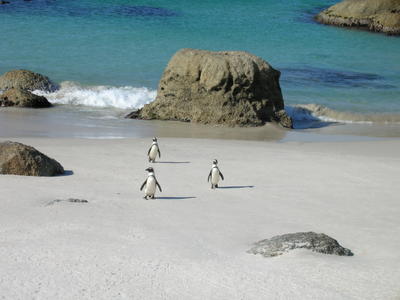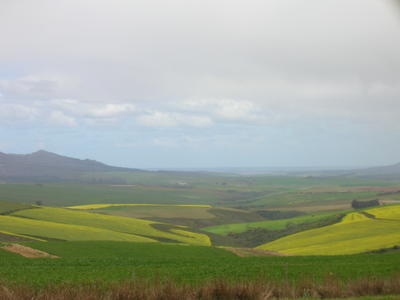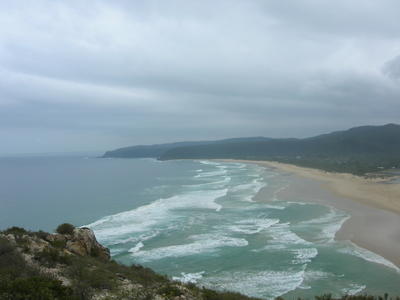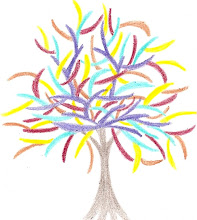Welcome to the Compound
"The compound" as it is called, is where I live. It consists of two houses and a small yard surrounded by a thick wall topped in razor wire. Within the compound live 21 American students, twelve in one house and nine in the other. It isn't exactly the South African, or even international, living condition I expected in coming to South Africa, but I've learned an enormous amount from living there.
The students in the compound come from schools and towns all over the country. There's a girl from Idaho who goes to school in New England, a girl from Virginia and a guy from New Hampshire who both go to school in Colorado, a girl from an HBC (Historically Black College), a girl from the west coast, a guy from the deep south, and one person, me, from the midwest. Four months ago we found ourselves thrown together into a common living situation. We occasionally joke that it's like MTV's The Real World, only without the confessionals. It's not quite like that, but when 21 people are brought together into that sort of situation, it results in a lot of interesting experiences.
Universities represented in the compound: Colorado College, University of Denver, Mt. Holyoke, Yale, University of Pennsylvania, University of Missouri, Northland College, William and Mary, Spelman College, Rhodes College, Tulane University, Lehigh, Middlebury, Tufts, and Berkeley
Nearly every possible topic of conversation has been discussed at one time or another in the compound. Discussions of race relations, international relations, domestic policy, the economy, unemployment, and religion occur surprisingly often around the W dining room table. Communism is bandied about at length during smoking sessions in the yard. The girls sit on counters in the kitchen for hours on end talking about guys, graduate schools, music, and sports. We've rehashed South African slang and cultural experiences, talked about places we've visited and those we'd like to see, talked about fears in coming and anxiety and excitement about going home. Guitars, harmonicas, and drums have been played and joined by singing.
It's amazing to watch the group dynamics of such a diverse group of people who are forced to live together. In a place where going out alone is often dangerous, unlikely bonds form between people. Strangers become friends as food is cooked/shared/horded/spoiled, dishes are washed/piled up dirty on the counter, movies are watched/borrowed/discussed, parents and friends are missed/grumbled about, significant others are pined for/dumped/dreamed of, and homework is done/procrastinated/lost. Would we have chosen to live with these people? Probably not. Would we have chosen these friends? Again, probably not. But somehow we were brought together and, over four months, learned fascinating things from one another. It may not have been the experience we planned, but it taught us things nonetheless. And we've built friendships from the experience.
The students in the compound come from schools and towns all over the country. There's a girl from Idaho who goes to school in New England, a girl from Virginia and a guy from New Hampshire who both go to school in Colorado, a girl from an HBC (Historically Black College), a girl from the west coast, a guy from the deep south, and one person, me, from the midwest. Four months ago we found ourselves thrown together into a common living situation. We occasionally joke that it's like MTV's The Real World, only without the confessionals. It's not quite like that, but when 21 people are brought together into that sort of situation, it results in a lot of interesting experiences.
Universities represented in the compound: Colorado College, University of Denver, Mt. Holyoke, Yale, University of Pennsylvania, University of Missouri, Northland College, William and Mary, Spelman College, Rhodes College, Tulane University, Lehigh, Middlebury, Tufts, and Berkeley
Nearly every possible topic of conversation has been discussed at one time or another in the compound. Discussions of race relations, international relations, domestic policy, the economy, unemployment, and religion occur surprisingly often around the W dining room table. Communism is bandied about at length during smoking sessions in the yard. The girls sit on counters in the kitchen for hours on end talking about guys, graduate schools, music, and sports. We've rehashed South African slang and cultural experiences, talked about places we've visited and those we'd like to see, talked about fears in coming and anxiety and excitement about going home. Guitars, harmonicas, and drums have been played and joined by singing.
It's amazing to watch the group dynamics of such a diverse group of people who are forced to live together. In a place where going out alone is often dangerous, unlikely bonds form between people. Strangers become friends as food is cooked/shared/horded/spoiled, dishes are washed/piled up dirty on the counter, movies are watched/borrowed/discussed, parents and friends are missed/grumbled about, significant others are pined for/dumped/dreamed of, and homework is done/procrastinated/lost. Would we have chosen to live with these people? Probably not. Would we have chosen these friends? Again, probably not. But somehow we were brought together and, over four months, learned fascinating things from one another. It may not have been the experience we planned, but it taught us things nonetheless. And we've built friendships from the experience.











